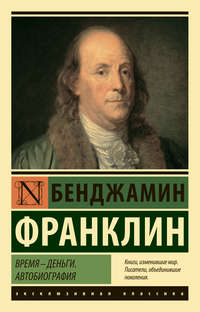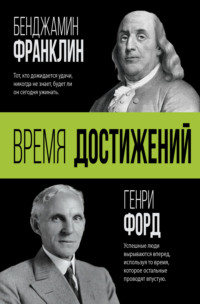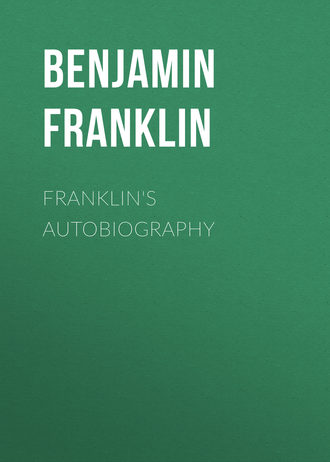 полная версия
полная версияFranklin's Autobiography
At Palmer's I was employed in composing 67 for the second edition of Wollaston's "Religion of Nature." Some of his reasonings not appearing to me well founded, I wrote a little metaphysical piece, in which I made remarks on them. It was entitled, "Dissertation on Liberty and Necessity, Pleasure and Pain." I inscribed it to my friend Ralph; I printed a small number. It occasioned my being more considered by Mr. Palmer as a young man of some ingenuity, though he seriously expostulated with me upon the principles of my pamphlet, which to him appeared abominable. My printing this pamphlet was another erratum.
While I lodged in Little Britain I made an acquaintance with one Wilcox, a bookseller, whose shop was at the next door. He had an immense collection of secondhand books. Circulating libraries were not then in use; but we agreed that, on certain reasonable terms, which I have now forgotten, I might take, read, and return any of his books. This I esteemed a great advantage, and I made as much use of it as I could.
My pamphlet falling into the hands of one Lyons, a surgeon, author of a book entitled "The Infallibility of Human Judgment," it occasioned an acquaintance between us. He took great notice of me, called on me often to converse on those subjects, carried me to the Horns, a pale-ale house in – Lane, Cheapside, and introduced me to Dr. Mandeville, author of the "Fable of the Bees," who had a club there, of which he was the soul, being a most facetious, entertaining companion. Lyons, too, introduced me to Dr. Pemberton, at Batson's Coffee-house, who promised to give me an opportunity, some time or other, of seeing Sir Isaac Newton, of which I was extremely desirous; but this never happened.
I had brought over a few curiosities, among which the principal was a purse made of the asbestos, which purifies by fire. Sir Hans Sloane 68 heard of it, came to see me, and invited me to his house in Bloomsbury Square, where he showed me all his curiosities, and persuaded me to let him add that to the number, for which he paid me handsomely.
In our house there lodged a young woman, a milliner, who, I think, had a shop in the Cloisters. She had been genteelly bred, was sensible and lively, and of most pleasing conversation. Ralph read plays to her in the evenings; they grew intimate; she took another lodging, and he followed her. They lived together some time; but, he being still out of business, and her income not sufficient to maintain them with her child, he took a resolution of going from London to try for a country school, which he thought himself well qualified to undertake, as he wrote an excellent hand, and was a master of arithmetic and accounts. This, however, he deemed a business below him; and, confident of future better fortune, when he should be unwilling to have it known that he once was so meanly employed, he changed his name, and did me the honor to assume mine; for I soon after had a letter from him, acquainting me that he was settled in a small village, (in Berkshire, I think it was, where he taught reading and writing to ten or a dozen boys, at sixpence each per week,) recommending Mrs. T – to my care, and desiring me to write to him, directing for Mr. Franklin, Schoolmaster, at such a place.
He continued to write frequently, sending me large specimens of an epic poem which he was then composing, and desiring my remarks and corrections. These I gave him from time to time, but endeavored rather to discourage his proceeding. One of Young's [n] satires was then just published. I copied and sent him a great part of it, which set in a strong light the folly of pursuing the Muses with any hope of advancement by them. All was in vain; sheets of the poem continued to come by every post.
A breach at last arose between us; and, when he returned again to London, he let me know he thought I had canceled all the obligations he had been under to me. So I found I was never to expect his repaying me what I lent to him or advanced for him. This, however, was not then of much consequence, as he was totally unable; and in the loss of his friendship I found myself relieved from a burden. I now began to think of getting a little money beforehand; and, expecting better work, I left Palmer's to work at Watts's, near Lincoln's Inn Fields, a still greater printing house. Here I continued all the rest of my stay in London.
At my first admission into this printing house I took to working at press, 69 imagining I felt a want of the bodily exercise I had been used to in America, where press work is mixed with composing. I drank only water; the other workmen, near fifty in number, were great guzzlers of beer. On occasion, I carried up and down stairs a large form of types in each hand, when others carried but one in both hands. They wondered to see, from this and several instances, that the "Water-American," as they called me, was stronger than themselves, who drank strong beer! We had an alehouse boy who attended always in the house to supply the workmen. My companion at the press drank every day a pint before breakfast, a pint at breakfast with his bread and cheese, a pint between breakfast and dinner, a pint at dinner, a pint in the afternoon about six o'clock, and another when he had done his day's work. I thought it a detestable custom; but it was necessary, he supposed, to drink strong beer that he might be strong to labor. I endeavored to convince him that the bodily strength afforded by beer could only be in proportion to the grain or flour of the barley dissolved in the water of which it was made; that there was more flour in a pennyworth of bread; and therefore, if he would eat that with a pint of water, it would give him more strength than a quart of beer. He drank on, however, and had four or five shillings to pay out of his wages every Saturday night for that muddling liquor – an expense I was free from. And thus these poor devils keep themselves always under.
Watts after some weeks desiring to have me in the composing room, I left the pressmen; a new bien venu, 70 or sum for drink, being five shillings, was demanded of me by the compositors. I thought it an imposition, as I had paid below; the master thought so too, and forbade my paying it. I stood out two or three weeks, was accordingly considered as an excommunicate, and had so many little pieces of private mischief done me, by mixing my sorts, 71 transposing my pages, breaking my matter, etc., if I were ever so little out of the room, and all ascribed to the chapel 72 ghost, which they said ever haunted those not regularly admitted, that, notwithstanding the master's protection, I found myself obliged to comply and pay the money, convinced of the folly of being on ill terms with those one is to live with continually.
I was now on a fair footing with them, and soon acquired considerable influence. I proposed some reasonable alterations in their chapel laws, and carried them against all opposition. From my example, a great part of them left their muddling breakfast of beer and bread and cheese, finding they could with me be supplied from a neighboring house with a large porringer of hot water gruel, sprinkled with pepper, crumbed with bread, and a bit of butter in it, for the price of a pint of beer, namely, three halfpence. This was a more comfortable as well as cheaper breakfast, and kept their heads clearer. Those who continued sotting with beer all day were often, by not paying, out of credit at the alehouse, and used to make interest with me to get beer, their "light," as they phrased it, "being out." I watched the pay table on Saturday night, and collected what I stood engaged for them, having to pay sometimes near thirty shillings a week on their accounts. This, and my being esteemed a pretty good "riggite," – that is, a jocular verbal satirist, – supported my consequence in the society. My constant attendance (I never making a Saint Monday 73) recommended me to the master; and my uncommon quickness at composing occasioned my being put upon all work of dispatch, which was generally better paid. So I went on now very agreeably.
My lodging in Little Britain being too remote, I found another in Duke Street, opposite to the Romish Chapel. It was two pair of stairs backward, at an Italian warehouse. A widow lady kept the house; she had a daughter, and a maidservant, and a journeyman who attended the warehouse, but lodged abroad. After sending to inquire my character at the house where I last lodged, she agreed to take me in at the same rate, three shillings and sixpence per week; cheaper, as she said, from the protection she expected in having a man lodge in the house. She was a widow, an elderly woman; had been bred a Protestant, being a clergyman's daughter, but was converted to the Catholic religion by her husband, whose memory she much revered; had lived much among people of distinction, and knew a thousand anecdotes of them as far back as the time of Charles II. She was lame in her knees with the gout, and, therefore, seldom stirred out of her room, so sometimes wanted company; and hers was so highly amusing to me that I was sure to spend an evening with her whenever she desired it. Our supper was only half an anchovy each, on a very little strip of bread and butter, and half a pint of ale between us; but the entertainment was in her conversation. My always keeping good hours, and giving little trouble in the family, made her unwilling to part with me; so that, when I talked of a lodging I had heard of, nearer my business, for two shillings a week, which, intent as I now was on saving money, made some difference, she bid me not think of it, for she would abate me two shillings a week for the future; so I remained with her at one shilling and sixpence as long as I stayed in London.
In a garret of her house there lived a maiden lady of seventy, in the most retired manner, of whom my landlady gave me this account: she was a Roman Catholic, had been sent abroad when young, and lodged in a nunnery with an intent of becoming a nun; but, the country not agreeing with her, she returned to England, where, there being no nunnery, she had vowed to lead the life of a nun, as near as might be done in those circumstances. Accordingly, she had given all her estate to charitable uses, reserving only twelve pounds a year to live on, and out of this sum she still gave a great deal in charity, living herself on water gruel only, and using no fire but to boil it. She had lived many years in that garret, being permitted to remain there gratis by successive Catholic tenants of the house below, as they deemed it a blessing to have her there. A priest visited her to confess her every day. "I have asked her," says my landlady, "how she, as she lived, could possibly find so much employment for a confessor." "Oh," said she, "it is impossible to avoid vain thoughts." I was permitted once to visit her. She was cheerful and polite, and conversed pleasantly. The room was clean, but had no other furniture than a mattress, a table with a crucifix and book, a stool which she gave me to sit on, and a picture over the chimney of St. Veronica 74 displaying her handkerchief, with the miraculous figure of Christ's bleeding face on it, which she explained to me with great seriousness. She looked pale, but was never sick; and I give it as another instance on how small an income life and health may be supported.
At Watts's printing house I contracted an acquaintance with an ingenious young man, one Wygate, who, having wealthy relations, had been better educated than most printers, – was a tolerable Latinist, spoke French, and loved reading. I taught him and a friend of his to swim at twice going into the river, and they soon became good swimmers. They introduced me to some gentlemen from the country, who went to Chelsea 75 by water to see the college and Don Saltero's 76 curiosities. In our return, at the request of the company, whose curiosity Wygate had excited, I stripped and leaped into the river, and swam from near Chelsea to Blackfriar's, 77 performing on the way many feats of activity, both upon and under the water, that surprised and pleased those to whom they were novelties.
I had from a child been ever delighted with this exercise, had studied and practiced all Thevenot's motions and positions, and added some of my own, aiming at the graceful and easy as well as the useful. All these I took this occasion of exhibiting to the company, and was much flattered by their admiration; and Wygate, who was desirous of becoming a master, grew more and more attached to me on that account, as well as from the similarity of our studies. He at length proposed to me traveling all over Europe together, supporting ourselves everywhere by working at our business. I was once inclined to it; but, mentioning it to my good friend, Mr. Denham, with whom I often spent an hour when I had leisure, he dissuaded me from it, advising me to think only of returning to Pennsylvania, which he was now about to do.
I must record one trait of this good man's character. He had formerly been in business at Bristol, but failed, in debt to a number of people, compounded, and went to America. There, by a close application to business as a merchant, he acquired a plentiful fortune in a few years. Returning to England in the ship with me, he invited his old creditors to an entertainment, at which he thanked them for the easy composition 78 they had favored him with, and, when they expected nothing but the treat, every man at the first remove found under his plate an order on a banker for the full amount of the unpaid remainder, with interest.
He now told me he was about to return to Philadelphia, and should carry over a great quantity of goods, in order to open a store there. He proposed to take me over as his clerk, to keep his books (in which he would instruct me), copy his letters, and attend the store. He added that, as soon as I should be acquainted with mercantile business, he would promote me by sending me with a cargo of flour and bread, etc., to the West Indies, and procure me commissions from others which would be profitable; and, if I managed well, would establish me handsomely. The thing pleased me, for I was grown tired of London, remembered with pleasure the happy months I had spent in Pennsylvania, and wished again to see it; therefore I immediately agreed on the terms of fifty pounds a year, Pennsylvania money; less, indeed, than my present gettings as a compositor, but affording a better prospect.
I now took leave of printing, as I thought, forever, and was daily employed in my new business, going about with Mr. Denham among the tradesmen to purchase various articles, and seeing them packed up, doing errands, calling upon workmen to dispatch, etc.; and, when all was on board, I had a few days' leisure. On one of these days, I was, to my surprise, sent for by a great man I knew only by name, a Sir William Wyndham, and I waited upon him. He had heard by some means or other of my swimming from Chelsea to Blackfriar's, and of my teaching Wygate and another young man to swim in a few hours. He had two sons about to set out on their travels; he wished to have them first taught swimming, and proposed to gratify 79 me handsomely if I would teach them. They were not yet come to town, and my stay was uncertain, so I could not undertake it; but from this incident I thought it likely that, if I were to remain in England and open a swimming school, I might get a good deal of money; and it struck me so strongly that, had the overture been sooner made me, probably I should not so soon have returned to America. After many years, you and I had something of more importance to do with one of these sons of Sir William Wyndham, become Earl of Egremont, which I shall mention in its place.
Thus I spent about eighteen months in London; most part of the time I worked hard at my business, and spent but little upon myself except in seeing plays and in books. My friend Ralph had kept me poor; he owed me about twenty-seven pounds, which I was now never likely to receive, – a great sum out of my small earnings! I loved him, notwithstanding, for he had many amiable qualities. I had by no means improved my fortune; but I had picked up some very ingenious acquaintance, whose conversation was of great advantage to me; and I had read considerably.
We sailed from Gravesend on the 23d of July, 1726. For the incidents of the voyage I refer you to my journal, where you will find them all minutely related. Perhaps the most important part of that journal is the plan 80 to be found in it, which I formed at sea, for regulating my future conduct in life. It is the more remarkable, as being formed when I was so young, and yet being pretty faithfully adhered to quite through to old age.
§ 4. IN PHILADELPHIA AND IN BUSINESS FOR HIMSELF
We landed in Philadelphia on the 11th of October, where I found sundry alterations. Keith was no longer governor, being superseded by Major Gordon. I met him walking the streets as a common citizen. He seemed a little ashamed at seeing me, but passed without saying anything. I should have been as much ashamed at seeing Miss Read, had not her friends, despairing with reason of my return after the receipt of my letter, persuaded her to marry another, one Rogers, a potter, which was done in my absence. With him, however, she was never happy, and soon parted from him, refusing to bear his name, it being now said that he had another wife. He was a worthless fellow, though an excellent workman, which was the temptation to her friends. He got into debt, ran away in 1727 or 1728, went to the West Indies, and died there. Keimer had got a better house, a shop well supplied with stationery, plenty of new types, a number of hands, though none good, and seemed to have a great deal of business.
Mr. Denham took a store in Water Street, where we opened our goods; I attended the business diligently, studied accounts, and grew, in a little time, expert at selling. We lodged and boarded together; he counseled me as a father, having a sincere regard for me. I respected and loved him, and we might have gone on together very happy; but, in the beginning of February, 1726/7, 81 when I had just passed my twenty-first year, we were both taken ill. My distemper was a pleurisy, which very nearly carried me off. I suffered a good deal, gave up the point in my own mind, and was rather disappointed when I found myself recovering, regretting, in some degree, that I must now, some time or other, have all that disagreeable work to do over again. I forget what his distemper was; it held him a long time, and at length carried him off. He left me a small legacy in a nuncupative 82 will, as a token of his kindness for me, and he left me once more to the wide world; for the store was taken into the care of his executors, and my employment under him ended.
My brother-in-law, Holmes, being now at Philadelphia, advised my return to my business; and Keimer tempted me, with an offer of large wages by the year, to come and take the management of his printing house, that he might better attend his stationer's shop. I had heard a bad character of him in London from his wife and her friends, and was not fond of having any more to do with him. I tried for further employment as a merchant's clerk; but, not readily meeting with any, I closed again with Keimer. I found in his house these hands: Hugh Meredith, a Welsh Pennsylvanian, thirty years of age, bred to country work; honest, sensible, had a great deal of solid observation, was something of a reader, but given to drink. Stephen Potts, a young countryman of full age, bred to the same, of uncommon natural parts, and great wit and humor, but a little idle. These he had agreed with at extremely low wages per week, to be raised a shilling every three months, as they would deserve by improving in their business; and the expectation of these high wages, to come on hereafter, was what he had drawn them in with. Meredith was to work at press, Potts at bookbinding, which he, by agreement, was to teach them, though he knew neither one nor the other. John – , a wild Irishman, brought up to no business, whose service, for four years, Keimer had purchased 83 from the captain of a ship; he, too, was to be made a pressman. George Webb, an Oxford scholar, whose time for four years he had likewise bought, intending him for a compositor, of whom more presently; and David Harry, a country boy, whom he had taken apprentice.
I soon perceived that the intention of engaging me at wages so much higher than he had been used to give was to have these raw, cheap hands formed through me; and, as soon as I had instructed them, then they being all articled 84 to him, he should be able to do without me. I went on, however, very cheerfully, put his printing house in order, which had been in great confusion, and brought his hands by degrees to mind their business and to do it better.
It was an odd thing to find an Oxford scholar in the situation of a bought servant. He was not more than eighteen years of age, and gave me this account of himself: he was born in Gloucester, educated at a grammar school there, and had been distinguished among the scholars for some apparent superiority in performing his part when they exhibited plays. He belonged to the Witty Club there, and had written some pieces in prose and verse, which were printed in the Gloucester newspapers. Thence he was sent to Oxford, where he continued about a year, but not well satisfied, wishing of all things to see London, and become a player. At length, receiving his quarterly allowance of fifteen guineas, 85 instead of discharging his debts he walked out of town, hid his gown in a furze bush, and footed it to London, where, having no friends to advise him, he fell into bad company, soon spent his guineas, found no means of being introduced among the players, grew necessitous, pawned his clothes, and wanted bread. Walking the street very hungry, and not knowing what to do with himself, a crimp's 86 bill was put into his hand, offering immediate entertainment and encouragement to such as would bind themselves to serve in America. He went directly, signed the indentures, was put into the ship, and came over, never writing a line to acquaint his friends what was become of him. He was lively, witty, good-natured, and a pleasant companion, but idle, thoughtless, and imprudent to the last degree.
John, the Irishman, soon ran away; with the rest I began to live very agreeably, for they all respected me the more as they found Keimer incapable of instructing them, and that from me they learned something daily. We never worked on Saturday, that being Keimer's Sabbath, so I had two days for reading. My acquaintance with ingenious people in the town increased. Keimer himself treated me with great civility and apparent regard, and nothing now made me uneasy but my debt to Vernon, which I was yet unable to pay, being hitherto but a poor economist. He, however, kindly made no demand of it.
Our printing house often wanted sorts, and there was no letter founder in America. I had seen types cast at James's in London, but without much attention to the manner; however, I now contrived a mold, made use of the letters we had as puncheons, struck the matrices 87 in lead, and thus supplied in a pretty tolerable way all deficiencies. I also engraved several things on occasion; I made the ink; I was warehouseman, 88 and everything, and, in short, quite a factotum.
But, however serviceable I might be, I found that my services became every day of less importance, as the other hands improved in the business; and when Keimer paid my second quarter's wages he let me know that he felt them too heavy, and thought I should make an abatement. He grew by degrees less civil, put on more of the master, frequently found fault, was captious, and seemed ready for an outbreaking. I went on, nevertheless, with a good deal of patience, thinking that his encumbered circumstances were partly the cause. At length a trifle snapped our connections; for, a great noise happening near the courthouse, I put my head out of the window to see what was the matter. Keimer, being in the street, looked up and saw me, and called out to me in a loud voice and angry tone to mind my business, adding some reproachful words that nettled me the more for their publicity, all the neighbors, who were looking out on the same occasion, being witnesses how I was treated. He came up immediately into the printing house; continued the quarrel; high words passed on both sides. He gave me the quarter's warning we had stipulated, expressing a wish that he had not been obliged to so long a warning. I told him that his wish was unnecessary, for I would leave him that instant; and so, taking my hat, walked out of doors, desiring Meredith, whom I saw below, to take care of some things I left, and bring them to my lodgings.


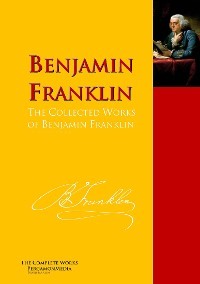
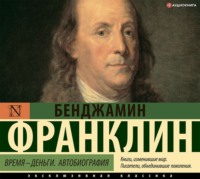
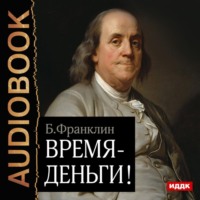
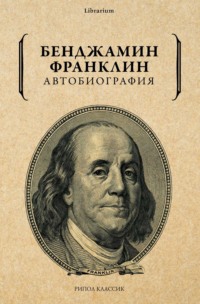
![Memoirs of Benjamin Franklin; Written by Himself. [Vol. 2 of 2]](/covers_200/24858395.jpg)
